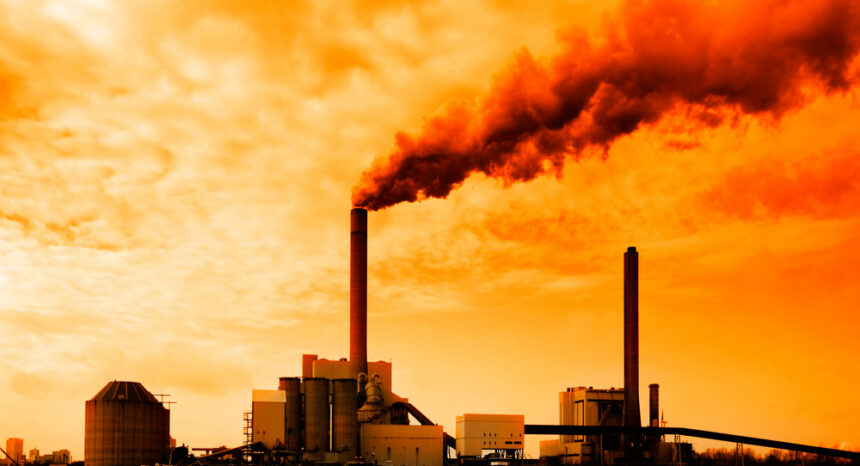The growing threat of rising levels of greenhouse gases has been in the news for a good 30 years now, and a range of terms have been used to describe the consequences of inaction: “climate change,” “global warming,” “climate disruption,” and more. The scientific community tends to use “climate change” in peer-reviewed literature, and many large international organizations, first and foremost the United Nations’ Intergovernmental Panel on Climate Change, tie their identity to that term. Journalists often use the two terms interchangeably, the implicit assumption being that readers understand them to mean the same thing and that they have the same connotations.
A May 2014 study reveals that people can react to them differently, however, with significant implications for science journalism and communications. The study, “What’s in a Name? Global Warming Versus Climate Change,” is based on two nationally representative surveys, one conducted by the Yale Project on Climate Change and the other by the George Mason University Center for Climate Change Communication. (The research team consisted of Anthony Leiserowitz, Geoff Feinberg and Seth Rosenthal of Yale; Nicholas Smith of University College London; Ashley Anderson of Colorado State University; and Connie Roser-Renouf and Edward Maibach of George Mason University.)
In their introduction, the authors note that despite being used widely to describe the same set of phenomena, “climate change” and “global warming” are different:
Global warming refers to the increase in the Earth’s average surface temperature since the Industrial Revolution, primarily due to the emission of greenhouse gases from the burning of fossil fuels and land use change, whereas climate change refers to the long-term change of the Earth’s climate including changes in temperature, precipitation and wind patterns over a period of several decades or longer.
Use of the terms has gone back and forth, the researchers indicate, sometimes for ideological reasons: In 2001 President George W. Bush used “global warming” in several environmental addresses, but his administration was advised by Republican strategist Frank Luntz to employ “climate change” instead: “While ‘global warming’ has catastrophic connotations attached to it, ‘climate change’ suggests a more controllable and less emotional challenge,” Luntz wrote. The White House followed his advice, and began to use “climate change” consistently. Internet data indicate that the public searches for the term “global warming” far more frequently, but that searches decreased significantly with the onset of the economic crisis.
To better understand how people react to the two terms and to explore their use, the researchers conducted two surveys in late 2013 and early 2014. The first asked 1,027 respondents about their familiarity with the terms, how often they heard them and which of the two they used more often. The second survey asked a nationally representative sample of 1,657 people a series of questions about the phenomena. For half of those surveyed, the questions used the term “global warming” and the other half, “climate change.” Respondents were classified by age (Generation Y, 18-30; Generation X, 31-48, Baby Boom, 49-67; and Greatest Generation, 68 or older) as well as gender, race, political views, and religious convictions.
The surveys’ results included:
- Based on the survey data, Americans are equally familiar with the two terms, but are four times more likely to report that they heard “global warming” in the public discourse. They are also twice as likely to say that they use the term “global warming” rather than “climate change” in conversations.
- For Republicans, the terms “global warming” and “climate change” are regarded as synonyms — neither is more engaging than the other, though “global warming” did result in stronger perceptions of personal or familial threats.
- Use of “climate change” appears to reduce engagement on the issue for a range of subgroups across age, political and gender lines. These included Democrats, independents, liberals and moderates; men, women and minorities; and different generations.
- In some cases, the difference in peoples’ reactions could be significant: “African-Americans (+20 percentage points) and Hispanics (+22) are much more likely to rate global warming as a ‘very bad thing’ than climate change. Generation X (+21) and liberals (+19) are much more likely to be certain global warming is happening. African-Americans (+22) and Hispanics (+30) are much more likely to perceive global warming as a personal threat, or that it will harm their own family (+19 and +31, respectively). Hispanics (+28) are much more likely to say global warming is already harming people in the United States right now. And Generation X (+19) is more likely to be willing to join a campaign to convince elected officials to take action to reduce global warming than climate change.”
- Use of “global warming” caused more intense worry about the issue, particularly among men, Generation Y, Generation X, Democrats, liberals and moderates. For men, Generation X, and liberals, use of “global warming” produced greater certainty that it was happening; for independents, greater understanding that human activities are the primary cause; and for independents and liberals, a greater understanding of the scientific consensus.
- “Global warming” was also associated with events such as melting glaciers, world catastrophe and other extreme phenomena. “Climate change” was associated more with general weather patterns.
“These diverse results strongly suggest that global warming and climate change are used differently and mean different things in the minds of many Americans,” the researchers conclude. “Scientists often prefer the term ‘climate change’ for technical reasons, but should be aware that the two terms generate different interpretations among the general public and specific subgroups.”
Related research: The National Oceanic and Atmospheric Administration offers a number of reports related to climate change, including one titled “What’s the Difference Between Global Warming and Climate Change?” that includes several data graphics. The Donald W. Reynolds Journalism Institute at the University of Missouri offers a guide to covering and defining what it calls “climate adaptation.”
Keywords: climate change, global warming, greenhouse gases, fossil fuels, science communication, climate politics, adaptation


Expert Commentary